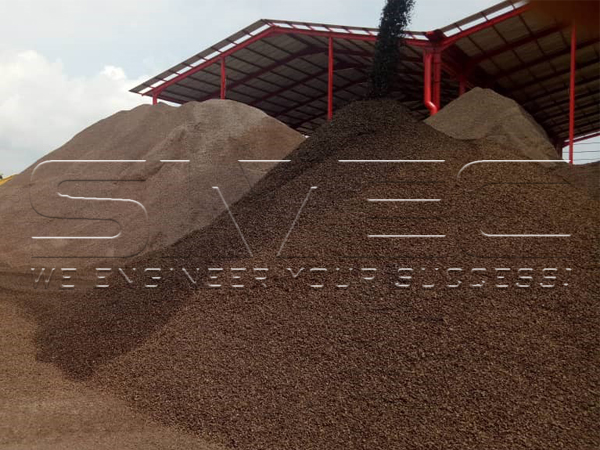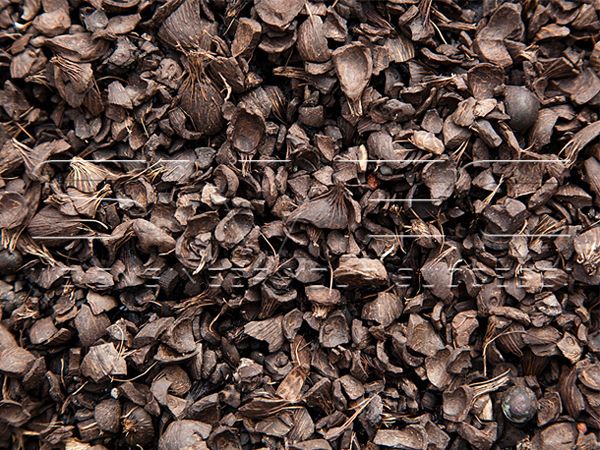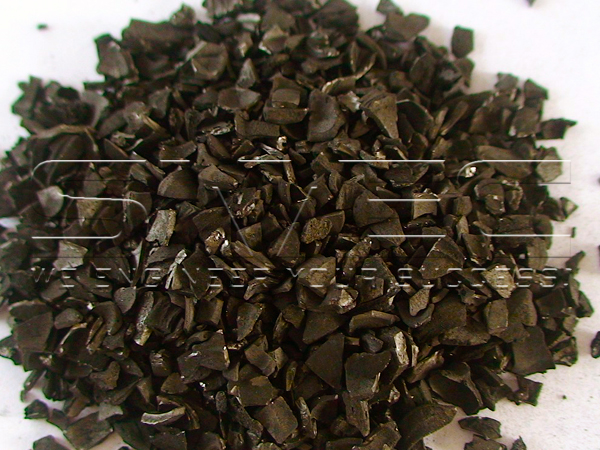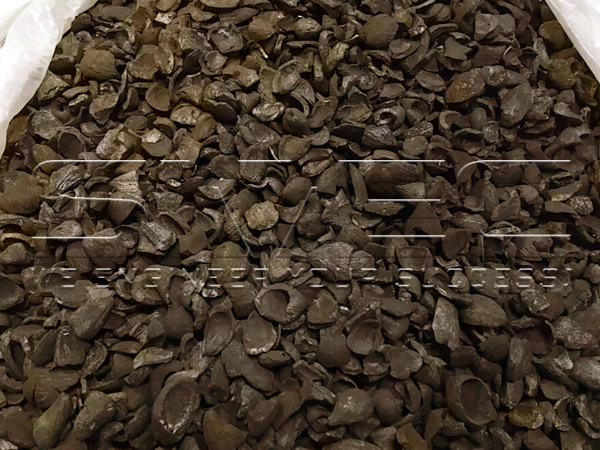Torrefaction of Oil Palm Kernel Shell


Raw PKS analysis report:
| Test Parameters | Results |
| GCV Kcal/Kg, ADB, ASTM D.5865-13 | 4465 |
| NCV Kcal/Kg, AR, ASTM D.5865-13 | 4195 |
| Total Moisture % AR | 10.2 |
| Total Sulfur % ADB | 0.05 |
| Fixed Carbon % ADB | 16.7 |
| Volatile Matter % ADB | 68.5 |
| Ash Content % ADB | 1.0 |
The torrefied PKS has higher Calorific Value, Higher Energy Density, Lower Moisture Content, Less Emission, etc. Apart from these common quality improvements, the torrefied PKS has outstanding hydrophobicity, so that it can be transported in bulk and stored outdoor like coal without decomposition. Meanwhile, it becomes easier to make powder from PKS, so that the desired particle size for cofiring is easier to obtain. The least but not last, the torrefaction process greatly reduces the risk of spontaneous combustion, ensuring storage safety.


Test results for three sorts of torrefied PKS are as follows:
| Torrefaction Temperature | 200℃ | 250℃ | 300℃ |
| Lower Calorific Value kcal/kg | 4610 | 4900 | 5710 |
| Moisture Content % | 0.9 | 0.9 | 0.3 |
| Fixed Carbon (wt%) | 22.5 | 27.4 | 43.5 |
| Volatile Matter (wt%) | 74.6 | 68.9 | 52.3 |
| Ash Content % | 2.0 | 2.8 | 3.9 |
| HGI | 14.5 | 17.0 | 21.3 |
SIMEC has vast expertise and rich experience in biomass torrefaction. We are committed to furnishing our clients with crafted engineering solutions and full-fledged biomass torrefaction equipment.
For more information about torrefaction, please email to info@simecpellet.com.
© Copyright of articles and pictures on this site belongs to SIMEC. Any company, media, website or individual are not allowed to reprint, reproduce, repost, modify or use in other ways without permission. Otherwise SIMEC will have the right to pursue legal responsibilities.